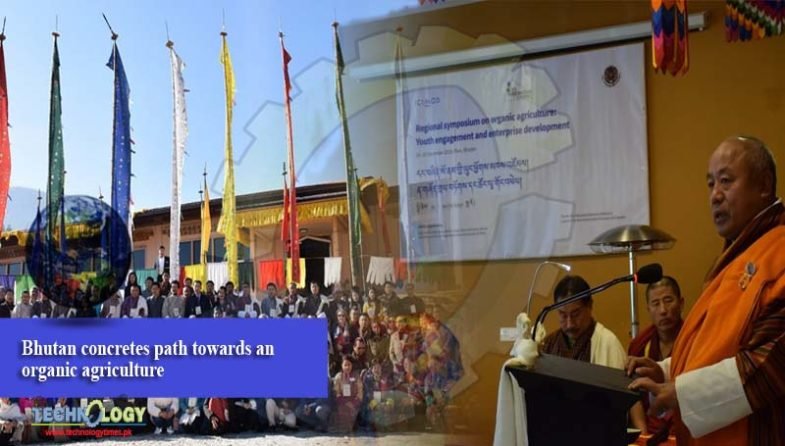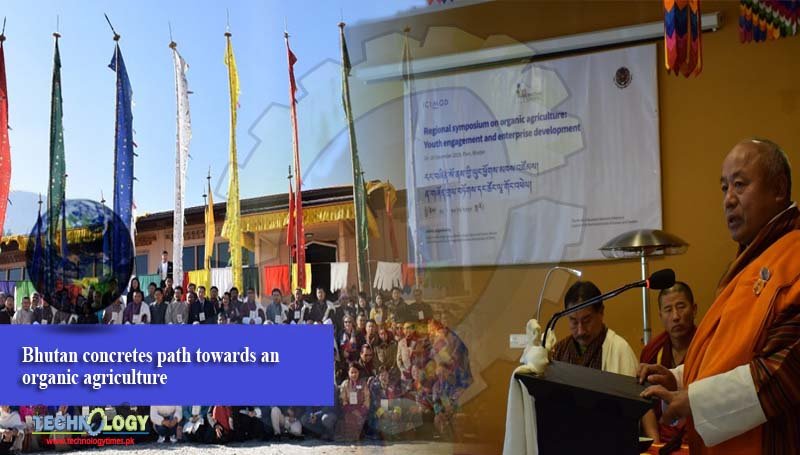The Ministry of Agriculture and Forests (MoAF), Bhutan and the International Centre for Integrated Mountain Development (ICIMOD) are jointly organizing a regional symposium on organic agriculture between 18 to 20 December.
 The regional symposium on ‘Organic agriculture: Youth engagement and enterprise development’ held in Metta Resort, Paro are being attended by policymakers, government officials, development experts, business people, and climate and agro scientists from the Hindu Kush Himalaya (HKH) region and abroad. On December 20, the attendees will also go on a learning excursion and field trip to Punakha.
The regional symposium on ‘Organic agriculture: Youth engagement and enterprise development’ held in Metta Resort, Paro are being attended by policymakers, government officials, development experts, business people, and climate and agro scientists from the Hindu Kush Himalaya (HKH) region and abroad. On December 20, the attendees will also go on a learning excursion and field trip to Punakha.
The chief guest for the event is the Minister, Ministry of Agriculture and Forests Bhutan, Yeshey Penjor. According to the Minister, “We are honoured to be hosting this important symposium here in Bhutan. While we are proud that the constitution of the Kingdom of Bhutan itself enshrines values ensuring ecologically balanced sustainable developed and that the goal of achieving a fully organic farming system is in sight. But we are also aware that reaching there depends on our own commitments and on learning and exchanging with international experts such as those gathered here.”
Organic agriculture contributes to mitigating climate change and enhancing rural livelihoods. There is great potential for organic agriculture in the HKH countries. But despite the growing demand in both national and international markets for the region’s organic products, the promotion of organic agriculture in the HKH faces numerous challenges, owing to inadequate awareness and marketing mechanisms for organic products, technical and financial services, quality inputs, and policy support.
Thus, the attendees of the symposium will be focusing on how the HKH countries can develop appropriate institutional mechanisms and innovative project and programme management structures, improve local capacities for responding to the needs of organic producers, and creating interest among all stakeholders to ensure the sustainability of organic agriculture.
To achieve these goals, strategies must be developed that increase the knowledge and understanding around organic agriculture systems, promote product-marketing mechanisms in the mountain context, and foster partnerships that promote gender-responsive organic agriculture. The symposium thus aims to help produce these goals, strategies, knowledge on organic agriculture.
The symposium aims to share the knowledge, good practices, and lessons learned regarding organic agriculture in the HKH, provide opportunities for fostering business partnerships, and, in particular, support the implementation of Bhutan’s National Organic Flagship Programme. It will also serve as a forum to initiate dialogues among relevant stakeholders by providing a knowledge-sharing and -networking platform for national, regional, and international experts, investors, and businesses, and harness investment opportunities for business development on organic agriculture.
The main expected outcomes of the symposium are the following: Development of a concrete action plan for promoting organic solutions in the HKH, with a particular emphasis on Bhutan; the establishment of B2B connections and network for investment and enterprise development at a regional scale; the drafting of a regional HKH-level standardization mechanism for organic agriculture products; and the creation of a regional knowledge-sharing platform on organic agriculture.
